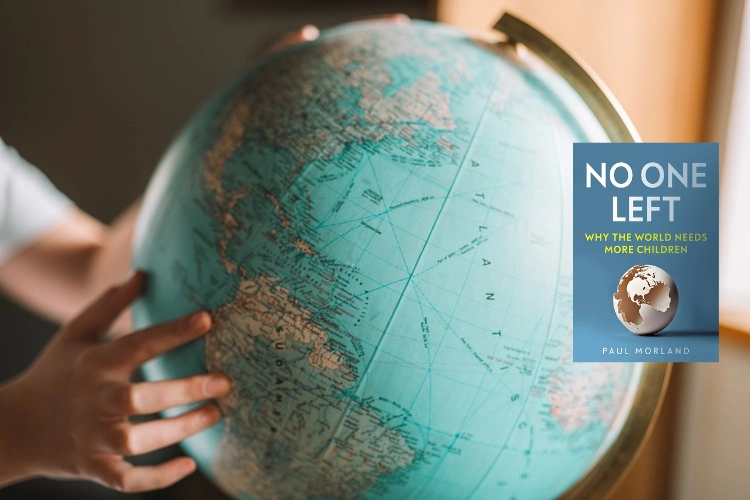
Paul Morland’s latest book sheds light on the damaging effects of underpopulation and its impacts upon labour force, economic progress & more
By Geordie Torr
Apocalyptic appears to be the default language mode when talking about future population. From Malthus in the 18th century through to 1968’s The Population Bomb, it was all about societal collapse due to overpopulation. But now, guess what, humanity is apparently facing societal collapse due to underpopulation.
In leading academic demographer Paul Morland’s view, we’ve entered a ‘demographic death spiral’. As fertility drops below the replacement rate of 2.1 offspring per couple in country after country (it happened in the UK during the early 1970s), the result of ‘our lamentable unwillingness to reproduce ourselves’, we’ve been sentenced to a ‘demographic winter’. ‘We are running out of people.’
With the world seemingly on the brink of environmental collapse due to our overconsumption of its finite resources, that might seem like no bad thing, but Morland sets out in forensic, nay apocalyptic, detail why it’s a very bad thing indeed. Falling fertility means fewer clever young people entering the workforce, which means less innovation, widespread labour shortages and a shrinking tax base, so less income for governments, right when they need to find a way to pay for the social care of their ageing citizens. ‘The result is ballooning government debt, with more and more social expenditure required and fewer and fewer workers to pay for it,’ Morland writes.
To back up his arguments, he provides a steady stream of fascinating insights into the current state of human demographics. Not just the what but also the why – the impact on global fertility of economics, culture (particularly religion, but also political affiliation, among other things) and medical progress.
But this is part primer, part polemic, and it’s the latter that some may find tough to swallow. Morland’s fierce pro-natalist rallying cry sees him breezily brush aside concerns about climate change and humanity’s rapacious resource consumption. We just need to start making more babies – and maybe one of them will solve our environmental problems with a clever technological fix.
This is an interesting, well-written book, but it feels a little like the author’s solution to the coming crisis simply condemns us to suffer the consequences of the existing ones.



